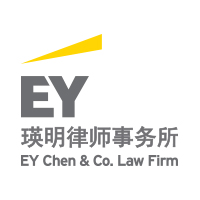The Guidelines on Further Steering and Standardizing the Direction of Outbound Investments (the No. 74 guidelines) was approved on 4 August 2017 by the State Council. Since regulation was heightened in 2016, this is the first official document that specifies the authorities’ approach to outbound investments, the permitted investment models, and subsequent protective measures required to be taken. An increasingly clear picture of new regulatory and policy trends in connection with outbound investments since the second half of 2016 thus comes to the surface.

Partner
EY Chen & Co. Law Firm
Authenticity and compliance review on foreign exchange flows. Some enterprises concentrate their outbound investments in sectors not belonging to the real economy. Contradictory to the overall objective of driving domestic growth, such investments cause substantial cash outflows affecting the financial security of China. That was why the NDRC and another three authorities said at a press conference on 6 December 2016 that the regulators were scrutinizing the recent irrational outbound investment spree in assets that included, but were not limited to, real estate, hotels, film centres, entertainment business and sports clubs.
The Notice on Further Promoting Foreign Exchange Control Reform and Improving Authenticity and Compliance Review subsequently, issued by the State Administration of Foreign Exchange, requires domestic institutions that undergo direct outbound investment registration and outward remittance procedures to provide banks with a statement of the source and purpose of funds, resolution(s) of the board of directors (or partners), contracts and other appropriate proof of authenticity, in addition to any materials that must be submitted for review. Banks are required to strengthen authenticity and compliance review pursuant to the principles for conducting business.
According to the above-mentioned policies, outbound investments will not be prohibited as long as they are authentic and comply with applicable laws and regulations. However, strengthened authenticity and compliance review means that it will take a longer time to complete an outward remittance transaction.
Filing will apply to acquisitions by foreign investors. Pursuant to the Decision on Amending the Interim Measures for the Administration of Filing for Incorporation and Change of Foreign-funded Enterprises, issued by the Ministry of Commerce on 30 July 2017, filing shall apply to deals whereby foreign investors acquire equity in PRC-based companies with their equity in foreign companies as consideration, provided that the deals are not subject to any special administrative measures or signed between related parties. Although Chinese companies are still not explicitly permitted to give their equity in foreign non-public companies as the consideration for takeover of foreign entities, the process of such transactions will no doubt take much less time compared with the previous “review and approval procedures”, because it takes only three working days to complete filing with commerce authorities provided that a complete set of application materials are submitted. In the context of rigorous controls over foreign exchange outflows, this change provides Chinese companies with one more option for paying their overseas takeovers and helps relieve the pressure of getting foreign exchange needed for payment abroad.
A model that features encouraged development and a negative list. The No. 74 guidelines classifies outbound investment activities into encouraged, restricted and prohibited categories, seeking to steer outbound investments into desirable directions by implementing a model that features encouraged development and a negative list. A “negative list” in respect of outbound investments is established. Investing in projects not falling into the restricted or prohibited categories will be permitted.
(1) The encouraged category. The No. 74 Guidelines encourages outbound investment in six fields, namely, infrastructure, industrial capacity and equipment, high-tech and advanced manufacturing, energy and resources, agriculture, and the services industry. With the aim of driving the development of the Belt and Road initiative and improving China’s capabilities in technical R&D, production and manufacturing, it provides further supports for enterprises with “high-tech and high added value” to carry out outbound investment and take part in international economic competition and cooperation. Besides, to help meet funding needs of enterprises “going global”, the government supports eligible financial institutions to establish overseas networks of branches and services.
(2) The restricted category. Outbound investment is restricted in five fields under the No. 74 guidelines. It should be noted that real estate, hotels, film centres, entertainment business and sports clubs are classified into the restricted category for outbound investment in view of the irrational acquisition spree in these assets in the past couple of years. Establishing a foreign equity fund or investment vehicle “that does not engage in any specific industrial project” is also included in the restricted category. It may have an impact on many investment institutions focusing on overseas M&A activities.
(3) The prohibited category. To cope with complex and changing security and development environment, prevent and control risks accompanying outbound investments, the No. 74 guidelines prohibits enterprises from investing in five fields that cause or are likely to cause damage to the interest or security of the state. By defining a “prohibited zone” for “going global” activities, it can safeguard the interest and security of the state more effectively.
Overseas M&A activities still provide ample opportunities. Since 2016, the Chinese government has introduced a series of regulatory measures, aiming at ensuring that enterprises make authentic outbound investments in a lawful manner and thus helping the Chinese economy to attain various general targets. Meanwhile, a string of policies supporting the “going global” efforts of Chinese enterprises has been launched to drive ongoing implementation of the Belt and Road initiative as a national strategy. Looking forward, Chinese enterprises will still benefit from unprecedented opportunities in overseas M&A activities.
It is foreseeable that specific measures will be introduced to refine these regulatory policies. Having identified trends and directions, enterprises should strengthen the overall presence and scheme that they have built for overseas investment activities. Besides, they should deepen legal and policy analysis on countries or regions where the targets are based, strengthen due diligence on the targets, and maintain active communication with competent authorities. As the source of funds is concerned, in addition to remitting domestic capital abroad, they may consider utilizing financing channels available in overseas market that will help minimize the negative impact of fund-related matters on the deals.
Author: Lin Zhong is a partner at EY Chen & Co. Law Firm
中国上海市浦东新区世纪大道100号
上海环球金融中心51楼 邮编:200120
51/F, Shanghai World Financial Center
100 Century Avenue, Pudong New District
Shanghai 200120, China
电话 Tel: +86 21 6881 5499
传真 Fax: +86 21 6881 7393
电子信箱 E-mail:
zlin@eychenandco.com
www.eychenandco.com





















